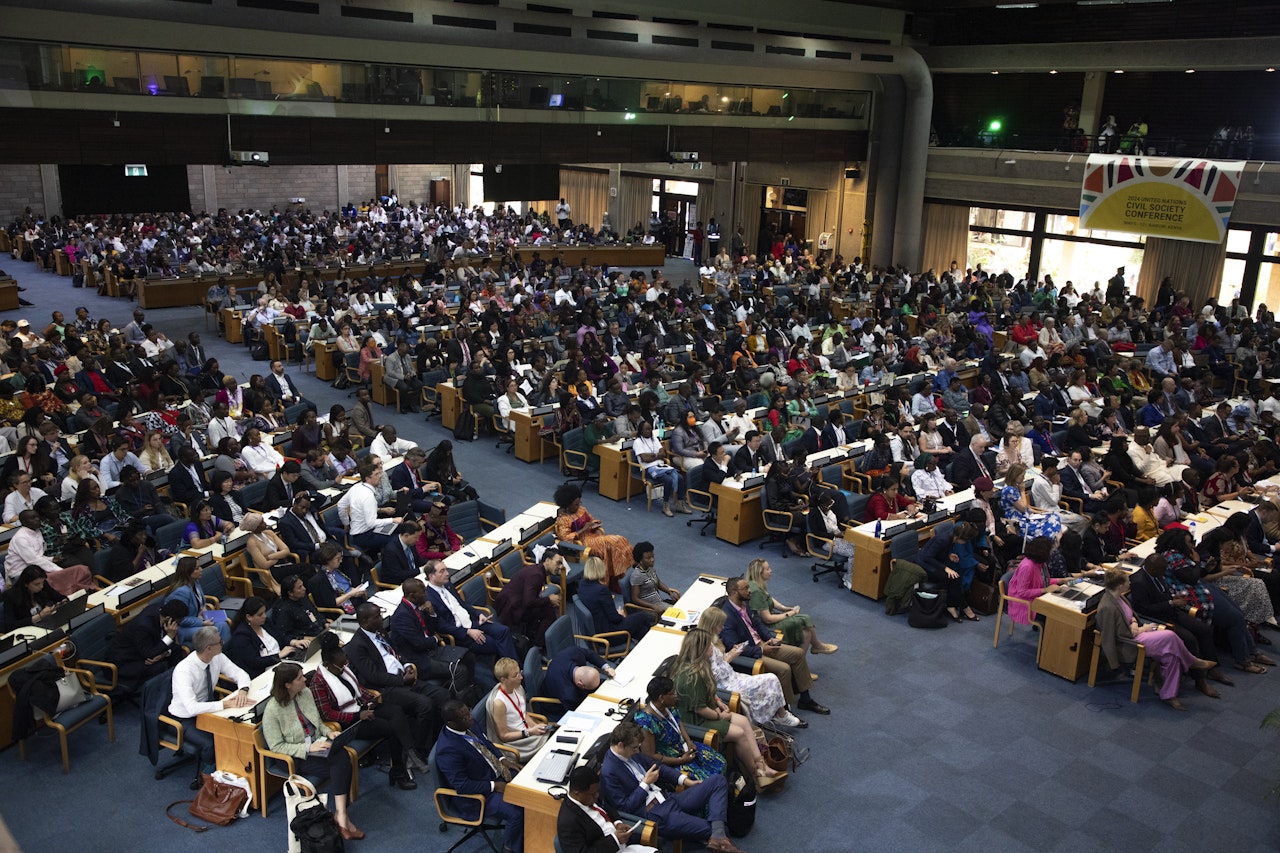BIC New York
Embracing humanity’s interdependence and shared identity
BIC explores new conceptions of leadership and justice at the UN Civil Society Conference, highlighting the need for a shared identity to shape global progress.

BIC explores new conceptions of leadership and justice at the UN Civil Society Conference, highlighting the need for a shared identity to shape global progress.

NAIROBI, Kenya — The crises that confront humanity call for new approaches to leadership and justice, grounded in a recognition of humanity’s shared identity. This idea was central to the contribution of the Bahá’í International Community (BIC) to the recent United Nations Civil Society Conference in Nairobi, Kenya.
The conference, organized to facilitate preliminary discussions for the upcoming Summit of the Future, brought together over 2,500 participants from more than 100 countries. Attendees included member state representatives, senior UN officials, and civil society representatives, who gathered to discuss the theme “Shaping a Future of Global and Sustainable Progress.”
Among the BIC’s activities was an event co-hosted with the conference’s two co-chairs and the Coalition for the UN We Need. Daniel Perell, a representative of the BIC New York Office, spoke in his opening remarks about the significance of the conference, saying that solutions to the world’s problems are made possible through “consultation among people with diverse perspectives, coming together on issues of shared concern and building a common understanding together.”
As a contribution to this consultation, the BIC released a working paper, themes from which will be incorporated into its forthcoming formal statement to the Summit of the Future.
Reflecting on the paper, Liliane Nkunzimana, another representative of the BIC in New York, said that while it acknowledges the many expert recommendations that have been put forward for institutional reform, these will be “limited in how effective they are, so long as the values and culture underlying them remain unchanged.
“Therefore, instead of offering alternative solutions,” Ms. Nkunzimana continued, “the working paper aims to explore how foundational values such as solidarity, unity, trustworthiness, and empathy, can increasingly be reflected in the organization of international affairs.”
The paper concludes that given the unprecedented degree of interconnectedness in today’s world, humanity stands at a critical juncture of hope and potential. “Through a collective act of will,” it reads, “the foundations for a better world can and must be laid today.”
Mr. Perell and Ms. Nkunzimana were joined in the BIC delegation to the conference by Solomon Belay from the BIC Addis Ababa Office, alongside members of the national Bahá’í communities of Kenya, Malaysia, Tanzania, and United States.